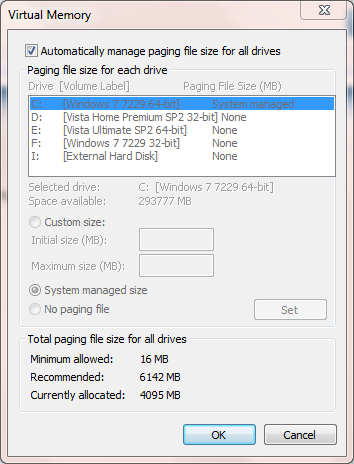New
#1
Paging file system will not set
Just love these new issues with the RTM bits. Never saw on earlier builds.
So, I have a computer that defaults to no paging file set.
No matter what I try, it will not let any paging file be set,
always goes back to nothing set.
Any ideas?
Dave


 Quote
Quote
